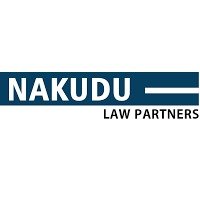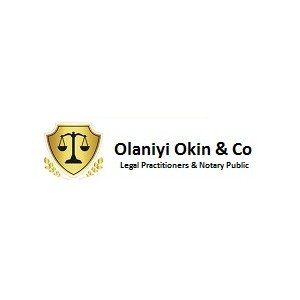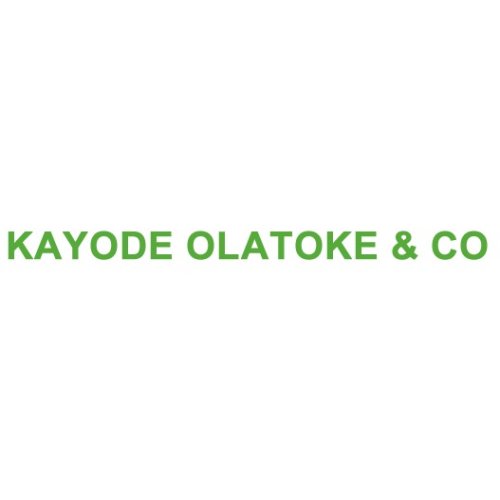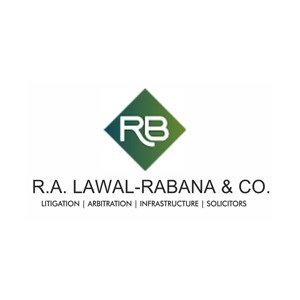Best Funds & Asset Management Lawyers in Nigeria
Share your needs with us, get contacted by law firms.
Free. Takes 2 min.
Or refine your search by selecting a city:
List of the best lawyers in Nigeria
Legal guides written by Adeola Oyinlade & Co:
- Procedure and Requirements for Work Permit and Visas in Nigeria
- The Step-By-Step Procedure of How to Apply for Microfinance Bank License Online in Nigeria
- How to Ensure the Smooth Recognition and Enforcement of Foreign Judgments in Nigeria
About Funds & Asset Management Law in Nigeria
Funds and asset management in Nigeria refer to the professional handling of various investment products, securities, pooled funds, and other financial assets on behalf of individuals, corporations, and government bodies. The sector includes mutual funds, private equity, pension funds, real estate investment trusts (REITs), and other collective investment schemes. The industry is regulated to protect investors, ensure transparency, promote financial market stability, and enforce anti-money laundering standards.
Key regulatory bodies such as the Securities and Exchange Commission (SEC) oversee asset managers and the structures they use, ensuring compliance with industry standards. With the increasing number of local and foreign investors, effective legal oversight is crucial to maintain trust and fair dealings in the financial markets.
Why You May Need a Lawyer
There are several situations where engaging a lawyer is vital in funds and asset management in Nigeria. Common scenarios include:
- Setting up a fund, trust, or collective investment scheme to ensure legal compliance
- Drafting, reviewing, or negotiating investment management agreements
- Handling disputes between investors, fund managers, or custodians
- Ensuring compliance with regulatory requirements issued by the SEC and other bodies
- Undertaking due diligence before investing in complex or high-value funds
- Managing tax implications related to fund investments
- Addressing cross-border investment and repatriation issues
- Responding to allegations of misconduct, fraud, or breach of fiduciary duty
- Liquidating or winding up funds legally and efficiently
As the funds and asset management landscape grows, staying compliant and protecting your interests is best ensured with professional legal assistance.
Local Laws Overview
The major legal frameworks and regulations governing funds and asset management in Nigeria include:
- Securities and Exchange Commission (SEC) Rules and Regulations
- Investment and Securities Act (ISA), 2007
- Companies and Allied Matters Act (CAMA), 2020
- Pension Reform Act, 2014
- Central Bank of Nigeria (CBN) Guidelines for Sovereign Wealth and other Institutional Investors
- Anti-Money Laundering and Combating the Financing of Terrorism Regulations
The SEC is the primary regulator and is empowered to license, regulate, and supervise all parties involved in collective investment schemes, including fund managers, trustees, custodians, and rating agencies. Stringent requirements are in place concerning registration, reporting, and disclosures to ensure investor protection and reduce systemic risk.
Investors and promoters must understand the operational requirements, capital thresholds, reporting obligations, and disclosure standards imposed by these laws. Also, proper tax planning and compliance with foreign exchange regulations are crucial, especially when cross-border transactions are involved.
Frequently Asked Questions
What is a collective investment scheme in Nigeria?
A collective investment scheme is any arrangement in which funds are pooled from multiple investors for the purpose of investing in securities or other assets. Examples include mutual funds, investment trusts, and REITs, all regulated by the SEC.
How do I know if a fund manager is licensed in Nigeria?
You can verify the licensing status of a fund manager by checking the list of registered fund managers on the SEC's official website or by writing directly to the SEC for confirmation.
What are the key steps to set up a mutual fund in Nigeria?
Setting up a mutual fund requires incorporation of a legal entity, registration with the SEC, appointment of a fund manager and a custodian, submission of the fund's trust deed and prospectus for SEC approval, and meeting the capital requirements stipulated by the SEC.
Are foreign investors allowed to participate in Nigerian funds?
Yes, foreign investors can invest in Nigerian funds, subject to compliance with foreign exchange regulations and disclosure requirements. Some restrictions and reporting may apply depending on the sector and fund type.
What are the main risks associated with funds and asset management?
Risks include market risks, operational risks, liquidity risks, and regulatory risks. Engaging licensed professionals and conducting due diligence can help mitigate these risks.
Who is responsible for safeguarding the assets of a fund?
A custodian, usually a licensed bank or financial institution, is appointed to safeguard the assets of a fund separate from the fund manager. This separation protects investors’ assets in case of misconduct or insolvency.
What disclosures must be provided to investors?
Fund managers must provide a prospectus, periodic financial statements, and other ongoing disclosures detailing the fund's performance, fees, risks, and strategy, as mandated by the SEC.
Can investors redeem their investments at any time?
Redemption rights depend on the type of fund. Open-ended funds generally allow investors to redeem units on demand, while closed-ended funds may impose restrictions or specific exit windows.
What legal remedies are available for investors who suffer losses due to fund mismanagement?
Investors may seek remedies including compensation through complaint resolution processes provided by the SEC, legal action for breach of fiduciary duty, or compliance violations.
What are the tax implications of investing in funds in Nigeria?
Taxation depends on the fund structure and investor residency status. Generally, returns from funds may be subject to withholding tax, capital gains tax, or value added tax, subject to applicable laws and any tax treaties.
Additional Resources
- Securities and Exchange Commission (SEC), Nigeria
- Central Bank of Nigeria (CBN)
- Nigerian Investment Promotion Commission (NIPC)
- Pension Commission (PenCom)
- Nigerian Stock Exchange (NGX)
- Chartered Institute of Stockbrokers (CIS)
- Federal Inland Revenue Service (FIRS) for tax matters
- Registered fund managers and investment advisory firms
Next Steps
If you are considering entering the funds and asset management space or require legal assistance regarding your investments, consider the following steps:
- Identify your specific needs, such as setting up a fund, compliance, regulatory issues, or dispute resolution
- Research and consult licensed professionals or law firms with expertise in funds and asset management in Nigeria
- Prepare all necessary documents and information ahead of your consultation to enable effective assistance
- Contact the SEC or relevant regulatory body for preliminary guidance if required
- Follow up on legal advice promptly and ensure all agreements and transactions are documented and compliant with Nigerian law
By taking these steps, you can better protect your investments, stay compliant with regulations, and resolve any legal challenges efficiently in the Nigerian funds and asset management sector.
Lawzana helps you find the best lawyers and law firms in Nigeria through a curated and pre-screened list of qualified legal professionals. Our platform offers rankings and detailed profiles of attorneys and law firms, allowing you to compare based on practice areas, including Funds & Asset Management, experience, and client feedback.
Each profile includes a description of the firm's areas of practice, client reviews, team members and partners, year of establishment, spoken languages, office locations, contact information, social media presence, and any published articles or resources. Most firms on our platform speak English and are experienced in both local and international legal matters.
Get a quote from top-rated law firms in Nigeria — quickly, securely, and without unnecessary hassle.
Disclaimer:
The information provided on this page is for general informational purposes only and does not constitute legal advice. While we strive to ensure the accuracy and relevance of the content, legal information may change over time, and interpretations of the law can vary. You should always consult with a qualified legal professional for advice specific to your situation.
We disclaim all liability for actions taken or not taken based on the content of this page. If you believe any information is incorrect or outdated, please contact us, and we will review and update it where appropriate.
Browse funds & asset management law firms by city in Nigeria
Refine your search by selecting a city.

















